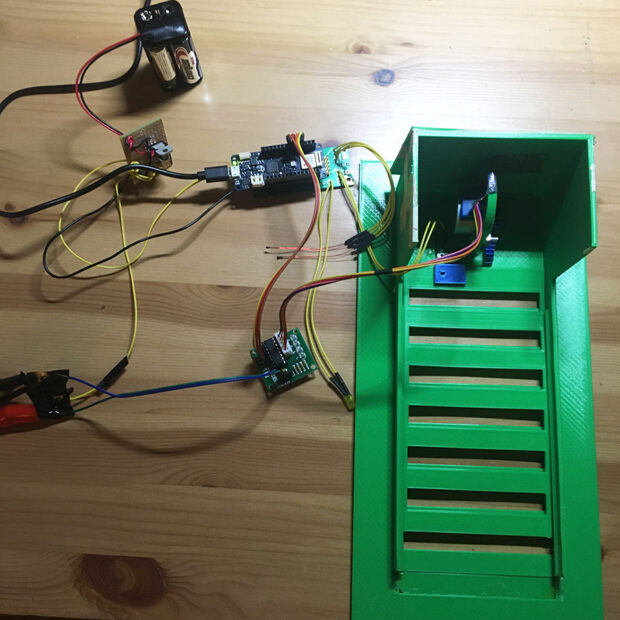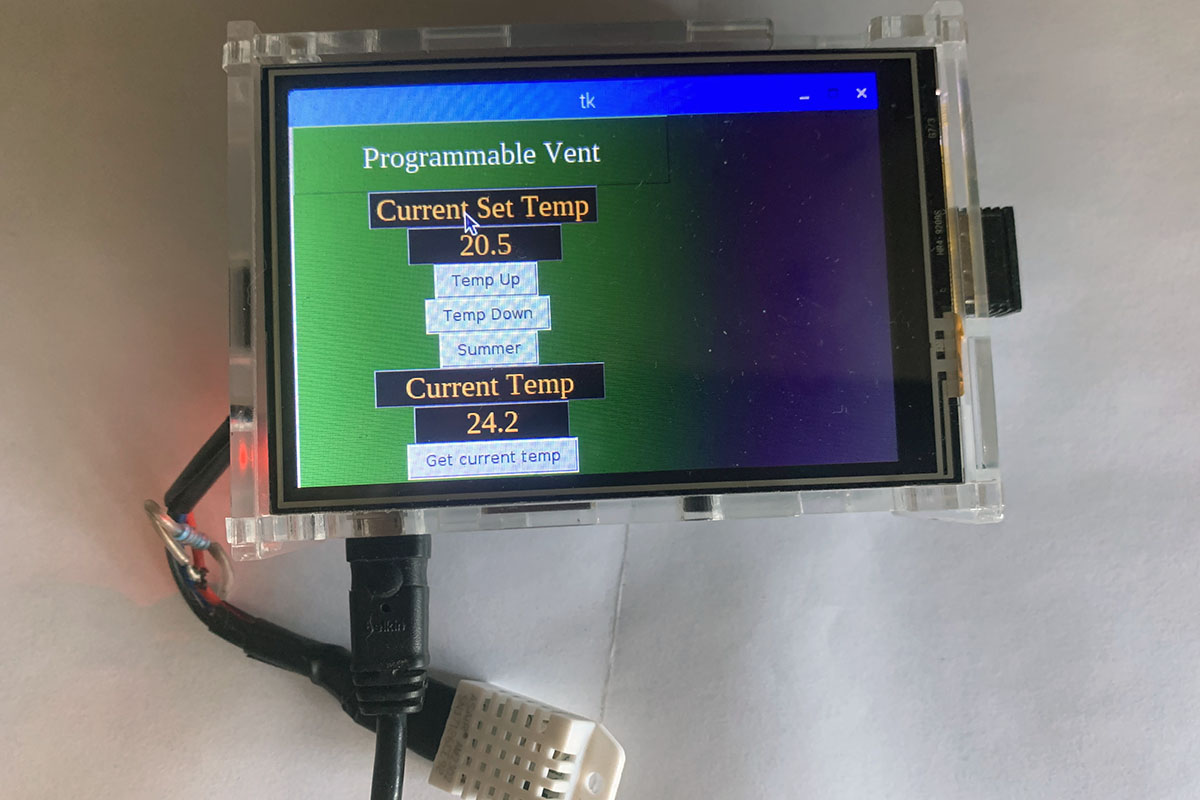Three students from the electrical engineering technology program have created an air vent that offers an energy efficient way to maintain a constant temperature in each room of a house.
The group, called Team Kelvin, created the programmable modulating air vent as their end-of-year project. On the surface the controllable vent looks like it’s a part of a regular household ventilation system, easily popping into place over the air duct.
However, it does more than that. They built a motor into the underbelly of the vent that is controlled wirelessly.
“Essentially the air vent responds to the signals sent from the wireless wall mounted controller,” said Guy Labrecque, the project manager who was also responsible for creating the hardware. “The controller reads the room temperature, compares it to the main house thermostat setting and then decides if the vent should be open or closed.”
“This improves the overall efficiency of any ventilation system and subsequently saves on energy costs,” said Labrecque.

As COVID restrictions would have it, the group did run into a few mishaps here and there.
For instance, relying on the use of the 3D printer from MakerSpace, an on-campus service that provides students resources for innovative projects, the group could only access it after booking a time slot.
Randy Kaasalainen, who created the design and managed all subsequent testing and documentation, had to drive in from Orleans every Wednesday to the campus.
“I had to pick up parts, bring them home and realize they needed adjustments,” said Kaasalainen. “Next thing you knew we had rulers out during Zoom. It caused some real modelling challenges.”
Jessica Black, the third member of the group, created the software coding that sent signals from the wall controller to the vent. Black says MakerSpace lost power a couple of times.
“We got half our print instead of the whole print,” she said, laughing as she recalled the event.
Despite not being able to work together in person and having to rely heavily on Zoom to go over schedules and assigned work, Team Kelvin agreed that the group’s makeup played a big role in completing their project.
“We’ve all been involved in projects someplace along the line,” said Labrecque. “When we had a project meeting everyone showed up with their parts and pieces ready to go.”
In Labrecque’s case he spent 29 years with the Air Force, Kaasalainen was in the Royal Canadian Artillery and Black has had 30 years of computer work.
“Some of us are really ready to roar and start on something, but others are really swamped with something else,” he said. “It’s that understanding and compassion we have to have for each other.”
“You can’t expect one person to do everything and manage everything either,” said Black, as the team nodded in agreement over Zoom.
“Our experience gave us the confidence to stay the course, work as a team and remain calm under the stressful COVID times,” said Labrecque.
What are their plans after college?
“Golfing,” said Labrecque, as the rest of the group smiled.


